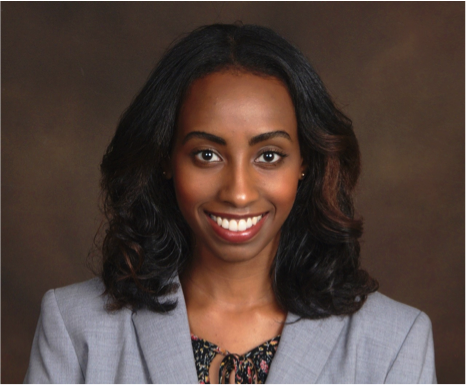By Ivy Godana
With the advent of social media and the internet, we are able to connect, inspire, and empower. And in this exists the perfect opportunity to broaden our definition of mentorship. One of the most remarkable opportunities for women surgeons is the global communities we have created such as AWS, RCSI-WIS, WISA, and many more. Although we have come a long way, we continue to redefine and expand our individual and collective means of community. Mentorship is at the center of this community and diversity is a key part.
Diversity is more than what we look like and our backgrounds. It is our most personal identity, our religious affiliations, our life experiences, our socioeconomic backgrounds, our opinions of the world, our outlook on matters of our society, our favorite hobbies, and more. Before we are healthcare providers, we are people. We meet to share and inspire as we work towards a common goal: to give our patients the best care possible. The more interactions we have, the more we meet our differences, the better we work as a team and, I believe, the better are our outcomes. Encouraging diversity in training and workspace is a great place to start. Diversity facilitates most importantly three opportunities. First, diversity brings new perspectives to the table. It asks and answers questions such as, how do we improve our reach as healthcare providers? It brings fresh ideas and innovative ways to accomplishing our goals. Secondly, and specifically on racial and religious lines, diversity matters to the patients. When a patient sees and identifies with a provider, there is a deeper element of trust and rapport built that is instinctual. All human beings do this subconsciously, as we feel connected to those who we believe to be similar to us. This is a natural part of human interaction. This matters because with established trust, patients are more likely to become a partner in their own journey to healing rather than passive players and this also impacts their outcomes. Of note, even in situations where patient and surgeon may not share any similarities, trust can be built with elements of compassion, patience, and kindness, as they are an integral part of any positive interaction. Last but not least, diversity inspires. To those young girls (and boys) who dream to become surgeons, and have the opportunity to see or meet someone who they can identify with, their dreams take shape and a seed is planted. It is the idea of, “if they can, so can I”. And in the eloquent words of actress Lupita Nyong’o – “ [their] dreams are valid”. That is our furthest reach in mentorship, collectively as surgeons, to inspire those that dream.
One of the most remarkable aspects of diversity is that it enriches mentorship. As it does in bringing new perspectives to the table, diversity offers a lovely assortment of mentors we can all learn from. A surgeon who, having lived through economic hardship, may better understand how to meet patients experiencing economic hardships at their point of need. This understanding, and manner of practice can be taught. To the resident who witnesses something like this, they too can bring it into their forming practice of surgery. As the world is evolving, barriers are broken, and glass ceilings shattered by more women of all diverse backgrounds, our communities of practitioners ought to reflect that. In essence, diversity plays an important role between surgeons in practice, among surgical residents in training, between surgeons and patients, and in mentorship. So, as we begin to enrich our own practice and learning, we begin first with ourselves. I encourage you to open the gates of your mind, and welcome a mentor who may look, practice, worship, or think differently from you. There is always something to be learned by those who we think we may not necessarily identify with. And as we do so, this in turn brings together the wonderful art of the practice of surgery. And diversity adds a beautiful color to it.
Ivy Godana is currently a first year General Surgery Resident at McLaren Greater Lansing – MSU in Michigan. She completed her Medical School at ATSU-SOMA and Undergraduate studies at Baylor University where she majored in Biology, graduating with Honors. She is an immigrant,a dreamer, a huge fan of No. 11 and 15 blades, books, aphorisms, and wildlife conservation. She is interested in Global Surgery. Ivy is incredibly honored to be a part of the Association of Women Surgeons! You can find her on twitter at @Dr_Godana and on instagram at @ivygodana.
__________________________________________________________________________________
Our blog is a forum for our members to speak, and as such, statements made here represent the opinions of the author and are not necessarily the opinion of the Association of Women Surgeons.






Este é o tipo de post que precisa compartilhado , pois realmente tem qualidade .
estarei compartilhando para minha lista de amigos para que saiba mais sobre o assunto no
seu site
Estive pesquisando sobre o tema até que cheguei a tua
postagem, fiquei contente com o que acabei de ler todo.
Muito obrigado!
Você na verdade faz parecer tão fácil com esta sua explicação, mas eu acho esse tópico algo
no qual é complicado pra eu por em pratica. Parece muito complexo e extremamente difícil pra mim.
Eu estou tentando aprender mais e espero ver mais post como
este para me incentivar, eu posso tentar pegar o jeito! Obrigado por enquanto.